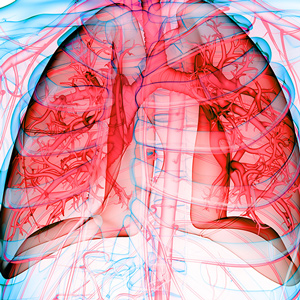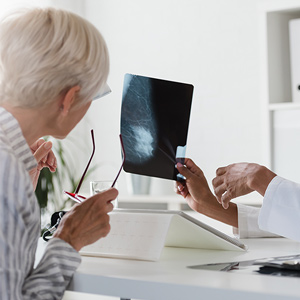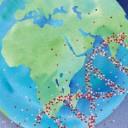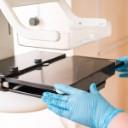Screening
-
Forward Look
What’s NextA magnet-guided robot could help doctors look for signs of cancer deeper in the passages of the lungs.
by Darcy Lewis
-
Forward Look
What’s Next?Artificial intelligence may help to classify colorectal polyps.
by Nancy Averett
-
Facts and Stats
Looking Closely at Lung CancerWhile there are many kinds of lung cancer, screening recommendations are standard across the board.
by Bradley Jones
-
Forward Look
Older Adults at Risk for Cancer OverscreeningMany older adults continue to be screened beyond the recommended age.
by Carisa Brewster
-
Colorectal Cancer Screenings at Home
Stool-based tests could increase access to colorectal cancer screening.
by Jen Tota McGivney
-
Why Do African Americans Have Increased Breast Cancer Mortality?
Socioeconomic factors and racism can lead to poorer health outcomes for Black Americans. Genetics may also be a factor behind increased mortality rates.
by Marci A. Landsmann
-
Cervical Cancer Screening Guideline Updated
A new version of the American Cancer Society's cervical cancer screening guideline says screening can start at a later age and highlights human papillomavirus testing as the preferred method.
by Anna Azvolinsky
-
Anal Cancer Diagnoses and Deaths Are Rising in the U.S.
Study underscores importance of early detection and prevention.
by Jane Langille
-
In It for the Long Haul
Doctors and researchers met online to discuss how the coronavirus pandemic changed cancer care in its early months, as well as how they can improve care and advocate for patients going forward.
by Kate Yandell
-
The Pandemic’s Impact on Cancer Screening and Detection
Delays in cancer screening and diagnosis due to the COVID-19 pandemic put people at risk.
by Kevin McLaughlin














